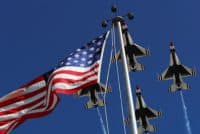
Key Points:
- Turkey’s strategic location as a land bridge and Black Sea gatekeeper gives it leverage in NATO.
- Failed EU membership bid has led Turkey to explore alliances like BRICS, including Russia.
- Turkey’s flexible foreign policy leads to independent actions and occasional NATO disagreements.
- While the defense sector is capturing attention in 2025, the smart money is already looking to “the next Nvidia” for 2025’s biggest winners. Access the report for free now.
Austin and Michael discussed Turkey’s strategic geopolitical position as the land bridge between Europe and Asia and the gatekeeper to the Black Sea, which gives it significant leverage within NATO. This positioning allows Turkey some room to disagree with other NATO members and maintain a more flexible foreign policy, including good relations with Russia and an interest in joining BRICS. Turkey’s longstanding, but unsuccessful, pursuit of EU membership has also pushed it to seek alliances elsewhere, contributing to its distinct role within NATO.
Watch the Video
Edited Video Transcript:
So you mentioned Turkey is effectively the land bridge in the region, and then also given their position with Istanbul, they are the sole access point to the Black Sea.
So does that geopolitical positioning make them the ultimate kind of gatekeeper or toll keeper within NATO?
Does that geopolitical importance afford them a little more room to maybe disagree with other NATO members?
Because if you were to lose Turkey as a NATO ally, you lose two of the most important transportation routes, both on sea and over land.
I’m just curious, does their position allow them to maybe have those disagreements with other NATO members, those ideological differences, those disputes with Greece, and be more tolerant?
I think that’s a fair thing to say.
With Turkey, there’s a few other things going on as well.
They have long pursued membership of the EU, but they’ve been unsuccessful.
They haven’t reached the criteria that other nations require.
Germany and France have been quite resistant to Turkey becoming part of the EU.
Now, this is something they’ve been trying to do really since the late 50s, early 60s, and it’s gone nowhere.
So they have felt almost compelled to look elsewhere for links and for alliances.
So Turkey recently has expressed some interest in joining BRICS, and that is sort of a loose coalition of non-aligned nations that are seeking to break Western economic hegemony.
BRIC stands for Brazil, Russia, India, China, South Africa.
Those are the founding members, but it’s since grown then.
So that’s quite alarming for members of NATO to see Turkey expressing interest in joining a group that Russia is part of.
But Turkey still has pretty good relations with Moscow.
They’re very heavily dependent on them for energy needs.
They don’t take part in American led sanctions against Russia.
The Turkish leader wants to kind of act as a mediator in the Ukraine conflict.
He’s met both leaders really in the last couple of months.
So, yeah, Turkey’s foreign policy is flexible.
They’re not as ideologically driven as other members of NATO.
And again, most of the European members of NATO either are or were a part of the EU, something Turkey hasn’t managed to do.
So that is part of the reason why they’re a bit distinct from other members of NATO.
But there’s other factors.
Take Charge of Your Retirement In Just A Few Minutes (Sponsor)
Retirement planning doesn’t have to feel overwhelming. The key is finding expert guidance—and SmartAsset’s simple quiz makes it easier than ever for you to connect with a vetted financial advisor.
Here’s how it works:
- Answer a Few Simple Questions. Tell us a bit about your goals and preferences—it only takes a few minutes!
- Get Matched with Vetted Advisors Our smart tool matches you with up to three pre-screened, vetted advisors who serve your area and are held to a fiduciary standard to act in your best interests. Click here to begin
- Choose Your Fit Review their profiles, schedule an introductory call (or meet in person), and select the advisor who feel is right for you.
Why wait? Start building the retirement you’ve always dreamed of. Click here to get started today!
Thank you for reading! Have some feedback for us?
Contact the 24/7 Wall St. editorial team.




